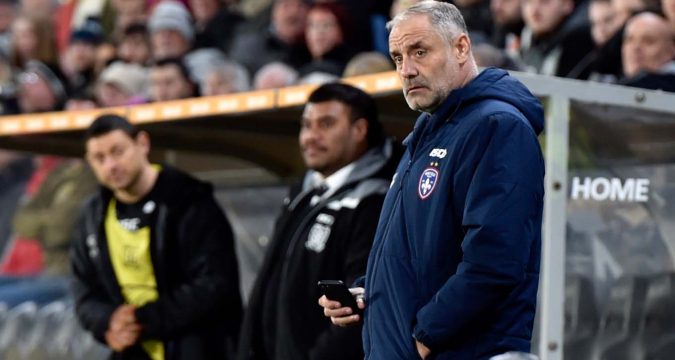
Wakefield Trinity chief executive Michael Carter believes that retaining the current salary cap will have a damaging effect on a number of Super League clubs.
Trinity are one of six clubs in favour of reducing the salary cap down to £1.8 million from £2.1 million next season, a reduction of almost 15 per cent.
Crucially, Carter revealed the proposal in place would not force clubs to reduce their costs immediately if they have already committed to spending in excess of £1.8 million next season on existing contracts.
And he would be more than happy for the cap to return to its current figure if the sport recovers financially.
But explaining his belief that the cap should be reduced he said: “I think it’s treating it as a normal business.
“If a normal business was predicting revenue to be significantly down, they would cut their cloth accordingly. And we are a normal business; just because there is a ball involved people seem to think that’s not the case.
“Until we can have crowds back in, that has knock-on effects on beer sales, season tickets and merchandise. The fans are as cash-strapped as everybody.
“Any normal business has to cut its cloth accordingly. There’s a fine balancing act between what you need and having a smaller budget.
“But if clubs have contracted players right here and now above £1.8m they should be given dispensation, I don’t want clubs to break contracts.
“If a club has committed to £2.1m, I wouldn’t be asking them to ditch three players to get under the cap.”
One of Carter’s strongest reasons for wanting the cap reduced is to retain competitiveness within Super League.
While some clubs will have to reduce costs to overcome the pandemic, others with significant financial backers will be able to maintain their current spend, meaning there is potential for a significant gulf in player spending.
“In my opinion, we’ve had a competition that’s been very competitive for the last several years,” he said.
“I feel like we can go to Wigan and Saints and win, but it didn’t feel like that in 2014 or 2015.
“Suddenly, if half a dozen clubs are spending £1.5m to £1.6m and the others £2.1m and £2.5m depending on dispensations, there’s going to be some blowout scores, and it’s not good if the competitiveness goes down.
“It’s a balancing act but I’m always of the opinion if we want to survive all twelve have to come with us. Sky won’t be interested in a six or eight-team competition.
“But we’re faced with 18 months of austerity and getting our businesses functioning again.”
He continued: “I took over seven years ago and year on year we’ve been building and building. There’s no magic wand unless you have millions to throw at it. So we have steadily, gone up the table and steadily increased revenues, crowds and sponsorship.
“The issue I face is that if we aren’t competitive, they won’t come and watch us; if the fans don’t believe we have a chance then they won’t come.
“It’s important to note that we’re only talking about one year. If we get to 2021 and revenues are back where they were then absolutely we go back to £2.1m. But these are a unique set of circumstances.”
